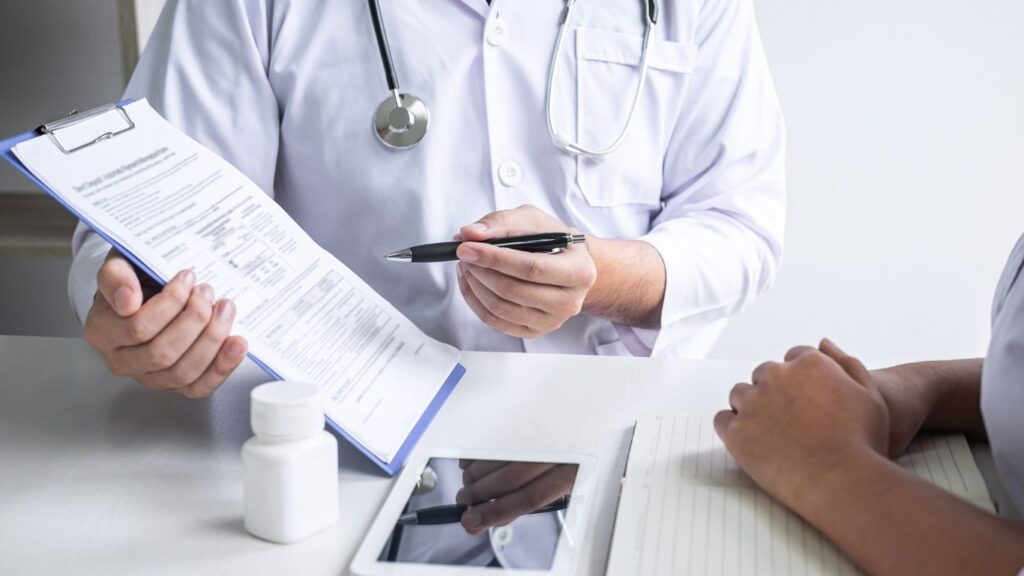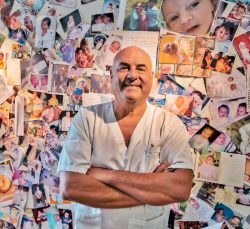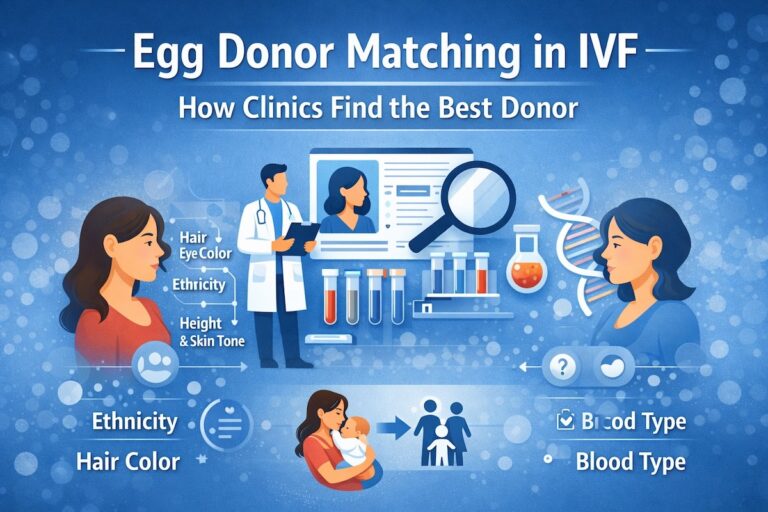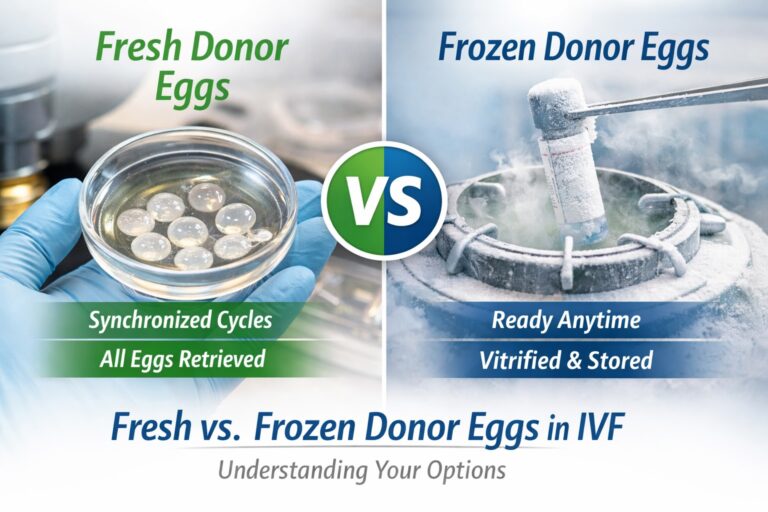One of the main reasons why patients look for treatment options abroad is because they can’t be treated in their home country. That has mainly to do with the legislation that regulates Reproductive Medicine in each country, which has significant differences. In countries like Italy and Germany, egg donation is not possible, so patients from those countries who have tried regular IVF without sources need to go abroad. One of the main European destinations for egg donation is Greece, because of their advanced legislation, techniques and expertise.
Many clinics in Greece understand the needs of the international patients and are well prepared with multilingual teams and support them every step of the way beginning with the planification of their trip.
Who Chooses IVF with Egg Donation?
There are many circumstances in which egg donation may be the the right option for the patient, here are some examples:
- Low ovarian reserve – when the ovaries are unable to produce a sufficient number of healthy eggs, often due to premature ovarian failure or diminished ovarian function.
- Advanced maternal age – as women age, particularly beyond their late thirties, both the quantity and quality of eggs naturally decline, reducing the chances of successful conception.
- Genetic conditions – for women who carry hereditary illnesses, using donor eggs can help prevent passing these conditions on to their children, as donor eggs pass very strict medical exams.
The treatment can be chosen by women with a partner (male or female) or without a partner. In Greece IVF with Egg Donation is open to patients without depending on their relationship status.
Greek Legislation When it Comes to Egg Donation
Egg donation in Greece is a highly regulated fertility treatment under the Greek Law 3305/2005, which sets strict standards for safety, ethics, and donor anonymity. In Greece most of the clinics have big donor banks, avoiding long waiting lists and allowing treatment to start without unnecessary delays. The donors in Greece are typically young, healthy women from a variety of ethnic backgrounds, enabling clinics to find a close and suitable match for each recipient, even for the international Patients.
All egg donors in Greece undergo detailed medical and psychological screening, including genetic testing, in line with the law’s requirements. The legislation also guarantees strict donor anonymity, by making the clinics follow rigorous ethical and professional guidelines throughout the process.
Basic Egg Donor Requirements in Greece (as defined by Law 3305/2005):
- Aged between 18 and 35 years
- In good physical and mental health
- Free from genetic and infectious diseases (confirmed through extensive screening)
- Completion of a psychological evaluation
- Anonymity legally required
- A Greek resident

Donor Selection & Screening Process
The donor selection process is meticulous and deeply considerate, ensuring every patient receives the best possible match while maintaining the highest medical and ethical standards.
Initial Assessment & Donor Registry
Prospective donors undergo a comprehensive evaluation before they appear in a donor pool. Those who pass detailed medical and psychological screening are added to the clinic’s registry and become available for matching.
Rigorous Medical & Genetic Screening
Candidates selected as egg donors at emBIO Medical Centre must be under 35 and in excellent physical and psychological health. The screening includes:
- Detailed medical and family history review
- Blood tests for infectious diseases: HIV, hepatitis B & C, syphilis
- Genetic testing: karyotyping, cystic fibrosis carrier status, Fragile X syndrome (FRAXA), and thalassaemia or sickle cell carrier status.
Psychological Evaluation
Each donor must complete a psychological assessment to confirm their emotional readiness and willingness. The clinic normally also offers counselling to address any social or emotional considerations relating to donating.
Treatment Options with Donor Eggs
Patients in Greece benefit from a range of treatment approaches using donor eggs, allowing them to choose the option best suited to their medical needs, timing, and budget:
- Fresh donor cycles – Eggs are retrieved from the donor and fertilised immediately.
- Frozen donor eggs – Eggs from pre-screened donors are cryopreserved and stored until needed. This option offers flexibility in scheduling and can speed up the treatment process.
- Double donation (donor eggs + donor sperm) – Suitable for patients where both egg and sperm donation are required, including single women, same-sex female couples, or where male and female factor infertility is present.
Steps of IVF with Egg Donation in Greece
The steps of an IVF treatment with donor eggs will depend on the medical history and treatment plan of each patient, but here are the general steps and their estimated duration:
- Initial consultation and medical tests – The patient undergoes blood work, ultrasound, and medical evaluation. Some clinics allow international patients to have a first online consultation with the medical team and to do the initial tests at home. (1–2 days)
- Donor selection and matching – Based on physical characteristics and medical compatibility, the clinic team does the selection for each patient. (Varies; often 1–2 weeks)
- Synchronisation of cycles – Hormonal preparation for the patient’s uterus while the donor’s cycle is stimulated. (2–3 weeks)
- Egg retrieval from the donor – Performed under sedation at the clinic. (1 day)
- Fertilisation in the lab – Donor eggs are fertilised with partner’s or donor sperm. (Same day as the egg retrieval).
- Embryo culture – Embryos are developed in the lab for 3–5 days before transfer. (3–5 days)
- Embryo transfer – During this procedure the fertility specialists place the embryo(s) into the patient’s uterus. (1 day)
- Pregnancy test – Carried out around 12–14 days after the transfer.
Do you need to be in Greece the entire time?
For most patients, it’s only necessary to be in Greece once for the embryo transfer stage, typically a stay of 5–7 days. Many initial tests and consultations can be completed in the patient’s home country, with coordination between local doctors and the Greek clinic to oversee the process. Most patients prefer to go to the clinic twice, once for the initial consultations and tests and then for the transfer.
From the initial consultation to embryo transfer, the entire process can take 4–6 weeks if the donor is already available and screening is complete.
Why Choose Greece for IVF with Egg Donation?
Greece has become one of Europe’s most chosen destinations for IVF with egg donation, thanks to the legislation we mentioned above. The legislation ensures that individuals and couples from abroad can access treatment under the same conditions as Greek residents, making the process transparent and smooth. With clinics located in easily accessible cities such as Athens, patients can even combine their treatment with a nice holiday.
One of Greece’s key advantages is its large pool of healthy, pre-screened egg donors, carefully selected through medical, genetic, and psychological evaluations. Combined with high medical standards and advanced IVF laboratories, patients can trust that their treatment meets the highest levels of safety and expertise in Europe. Leading clinics such as emBIO Medical Centre in Athens are recognised for their work, high success rates, and personalised approach to patient care.
In addition, many clinics in Greece offer English-speaking and multilingual medical teams, ensuring fluent communication with international patients during their treatment. The overall cost of egg donation IVF is often significantly lower than in other European countries, making Greece an attractive choice for patients seeking both excellent care and greater affordability — all in a welcoming, well-connected destination.
General price comparison for IVF with Egg Donation:
Greece €4,200–€6,000
Spain €5,900–€11,000
UK £10,500
United States $20,000–35,000

Travelling to Athens for IVF Treatment with Egg Donation
Athens is exceptionally well connected, making it an ideal location for international fertility treatment. Athens International Airport (Eleftherios Venizelos) receives direct flights from most major European cities and many long-haul destinations, with frequent public transport and taxi services into the city centre.
For an egg donation cycle at emBIO Clinic, most international patients only need to be in Greece once, typically for 7–10 days to cover the egg retrieval, fertilisation, and embryo transfer stages. Initial consultations and preparatory tests can often be completed in the patient’s home country, coordinated with the clinic to minimise time away from home.
emBIO offers extensive patient support services to ensure a smooth and stress-free experience. This includes personalised accommodation recommendations near the clinic, access to professional translators for non-English-speaking patients, and assistance with local transport arrangements between the airport, clinic, and hotel. This tailored support allows patients to focus fully on their treatment in a comfortable and welcoming environment.
Why Choose EmBIO Clinic for Egg Donation IVF
With more than 25 years of expertise in egg donation, emBIO Medical Centre in Athens is one of Greece’s most established and respected fertility centres. The clinic is renowned for its stringent donor screening process, ensuring every donor meets the highest medical, genetic, and psychological standards.
emBIO’s state-of-the-art laboratory uses the latest assisted reproduction technologies to maximise success rates, from advanced embryo culture techniques to preimplantation genetic testing where appropriate. Their approach is highly personalised, with dedicated care for international patients, including multilingual support, flexible scheduling, and assistance with every logistical detail from arrival to departure.

The Medical Team at emBIO Medical Centre Answers your Questions:
Do you have your own donor bank? How many donors do you have (approximately)?
Yes, our clinic maintains its own donor bank, currently with approximately 200 carefully screened donors to ensure a broad selection for our patients.
What specific matching program or process do you use in your clinic?
We use a comprehensive matching program that takes into account physical characteristics, blood type, immunological compatibility, and personal preferences to find the best possible match for each patient.
How big is the expert team that decides the donor for a patient?
Our donor selection team includes reproductive specialists, geneticists, and counsellors, totalling around 6-8 experts who collaborate closely to make the optimal donor choice.
How many days does a patient stay at your clinic or in Greece if she undergoes an egg donation treatment?
The treatment typically begins in your country of residence, following our detailed instructions and medical supervision. You will be required to stay in Greece for approximately 7 to 10 days, depending on your individual monitoring needs and the specific treatment protocol.
Table of Contents




